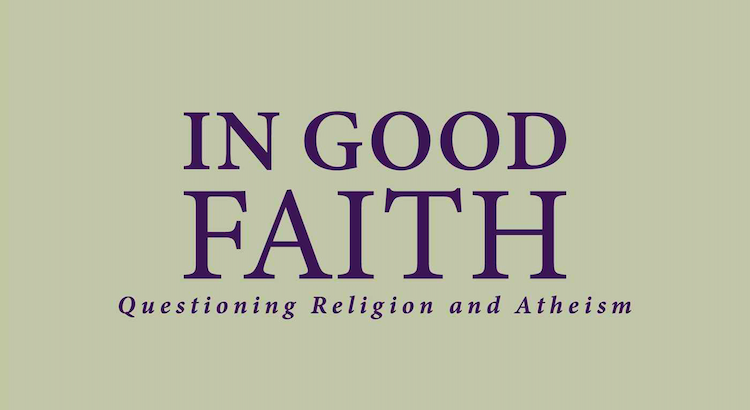If ever a subject existed where people felt comfortable offering criticism, religion must be near the top of the list.

And so it is that we get to the core of Scott Shay’s book, In Good Faith: Questioning Religion and Atheism (Post Hill Press, 2018).
Shay lays forward his position that monotheism (belief in the existence of one God) is both historically essential and eminently practical for thoughtful people navigating modern-world challenges.
The review copy came to me through Chai Mitzvah, an organization based in West Hartford, Conn., and founded by the book’s author that promotes group-based continuing education to post-secondary teens and adults.
In his introduction, Shay describes himself as a successful banker/financier and long-time Jewish community member.
Discussions tackle relevance of religion in modern world
Shay describes instances where he found himself explaining to Jews and non-Jews alike how Judaism informs his own life and choices, answering their questions about the relevance of faith and God in today’s world.
This book is a meticulously researched explanation of how Abraham made a gift to the world of monotheism and how it is no accident civilization took off thereafter.
Within his social circle, Shay found it quite acceptable to question the presence of God, the role of organized religion in society and the subject of moral relativism -— the concept that no one set of moral principles is more valid than another.
This book is a meticulously researched explanation of how Abraham made a gift to the world of monotheism and how it is no accident civilization took off thereafter.
Author mounts six-part defense as idolatry takes a hit
Shay’s defense of religion vs. moral relativism, which is commonly associated with atheism, is broken into six parts. Each part takes on a specific criticism of faith in general.
 Part one deals with a modern identification of idolatry. In essence, he suggests, every evil, past and present, committed in the name of religion is due to idolatry.
Part one deals with a modern identification of idolatry. In essence, he suggests, every evil, past and present, committed in the name of religion is due to idolatry.
Shay’s argument on this topic is thought-provoking; his logic compelling but not always complete.
Take for example this head-scratcher on Page 79: “Idolatry can best be summed up as the exact opposite of what makes life constructive and meaningful.”
I call that a “head scratcher” since the conclusion appears to depend on the author’s own definition of “idolatry”. The reasoning could thus continue, “If it ends well it must have been good, and if it ends poorly, well, it must have been idolatry.”
The remaining sections offer further defense for the Old Testament; discuss the presence of evil; and postulate that science can in fact co-exist with God. Finally, the author asks, what role exists for prayer today?
Faith helps navigate the path forward
Shay writes well and engages his audience, while failing to successfully defend all his premises.
In my mind, though, he clearly outlines the issues we should navigate as we conduct our personal spiritual journeys.
We hear it said that faith is not the proclamation of a certain set of precepts but rather the evolving roadmap that helps us make meaningful decisions.
We hear it said that faith is not the proclamation of a certain set of precepts but rather the evolving roadmap that helps us make meaningful decisions.
My pleasure in reading Shay’s book does not derive so much from the “answers” he provides as the inspiration to think though the big questions.
As with life itself, the destination is not so important as the trip we take to get there.
Scott Skillman is past president of UHC Terre Haute.
